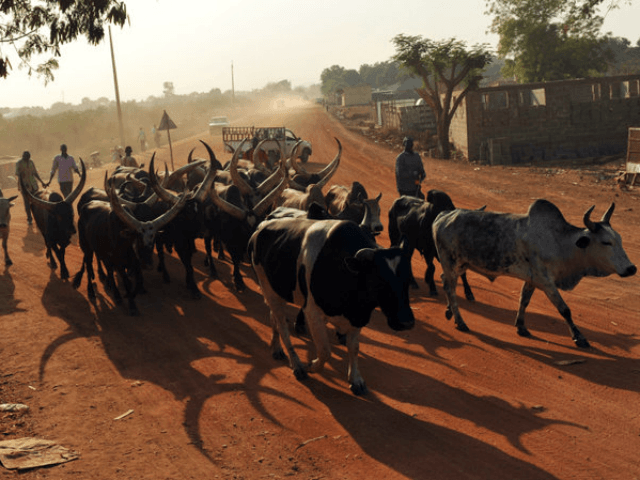An extensive report published by Thomson Reuters Foundation on Wednesday finds that the price of a child bride in eastern Africa, particularly South Sudan and Kenya, has skyrocketed as families seek ways to avoid starvation and ensure their children have food and shelter.
The trading of child brides for a dowry of cattle or goats has long been a common practice in Africa, despite many states on the continent outlawing marriages before 18. Police in many of these countries do not enforce the law or seek out evidence that a child may have been traded into what often amounts to sexual slavery.
Also endangering girls is the practice of families marrying them off to sexual abusers or rapists, who may sometimes deliberately target a girl for sexual assault knowing that they can later negotiate to marry the girl, keeping the abuse a secret.
According to Thomson Reuters, which uses data gathered by the NGO Girls Not Brides, the average price of a child bride is around 30 cows but has recently reached up to 300 cows per girl. Prices have escalated most in areas affected by the ongoing civil war in South Sudan, or areas where starvation has triggered more acute levels of poverty in Kenya.
Over half of girls under 18 in South Sudan are married.
“Majority of the parents wish to give up their girls and marry them off because of the economic hardship,” Dorcas Acen, from the charity CARE International, told Thomson Reuters. Acen operates in South Sudan, according to the outlet. “They are looking at how to reduce the number of mouths they need to feed.”
Reports in local media in Kenya suggest that the price of several dozen cows or goats was the longtime standard to trade for an underaged girl. As recently as December, Kenya’s the Star told the story of a 16-year-old girl traded to a man as his fourth wife for 26 cows and ten goats. Her parents forced her to drop out of school to take the marriage. Her father told the newspaper, “I will sell the livestock and use the money to educate the younger ones. I was unable to pay for their education because all my animals died during the drought.”
Kenya outlawed these marriages in 2014, but little enforcement of the law exists. Police are hesitant to ask when hearing of a wedding what the bride’s age is. As Human Rights Watch noted in 2015, Kenya was not alone in lifting the marriage age, but “Police may not have adequate training on dealing with these cases, do not see it as their job to prevent child marriages, or defer to the parents’ wishes.”
The Star also reported in December of the increasingly common practice of families allowing rapists and sexual attackers to marry their underaged daughters to keep the sexual assault a secret. A 2017 report found that the price of a child bride drops significantly if they cannot prove themselves to be virgins. After they are raped, families fearing that they will not be able to marry off the child to someone who can feed her end up handing the girl over to her attacker.
Unlike Kenya, where poverty and the threat of starvation are the main drivers of child marriage, South Sudan has been embroiled in a civil war for nearly its entire existence, since being founded in 2011 and handed over to President Salva Kiir and Vice President Riek Machar. Machar has since left the legitimate government and leads an organized violent resistance to Kiir. Both sides in the war face accusations of severe human rights violations against civilians. Kiir and Machar signed a ceasefire Wednesday, which remains in place at press time.
More than half of South Sudanese girls are married before age 18, according to a 2017 study.
Child marriage is common outside of these nations, as well. Last week, the Malawi News Agency promoted the work of the Women and Law in Southern Africa Research and Educational Trust in the country to discourage child marriages and encourage families to send the girls to school. The group has launched an effort to convince parents that their daughters will be better able to feed themselves and live happier lives if they go to school.
Human Rights Watch noted among the other major areas of concern for child marriage in a 2015 report were Niger, where 77 percent of girls married before turning 18, and Central African Republic and Chad, where the number is 60 percent.

COMMENTS
Please let us know if you're having issues with commenting.